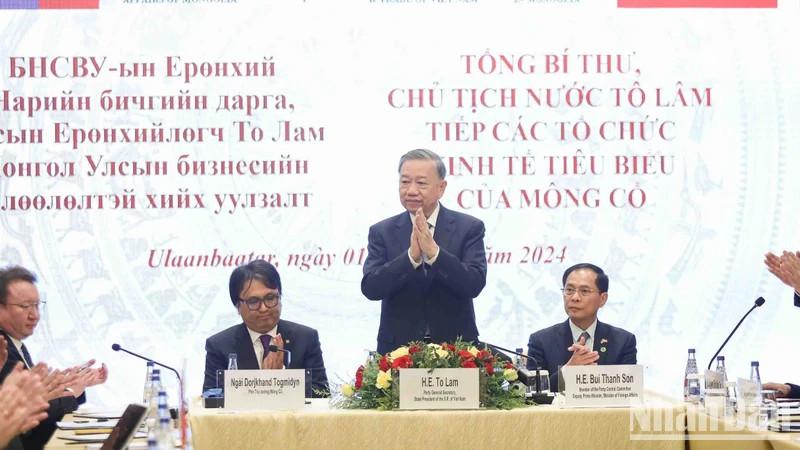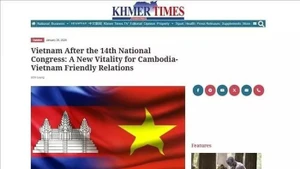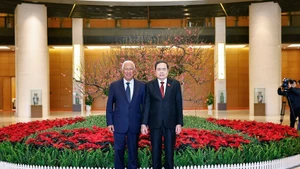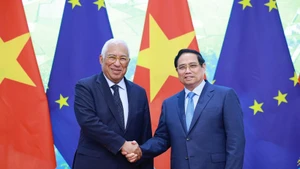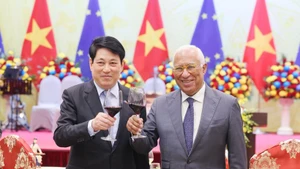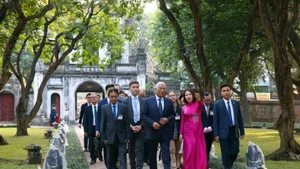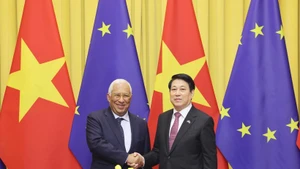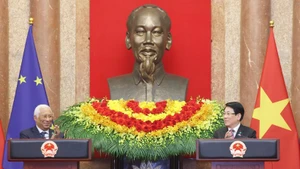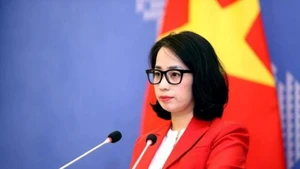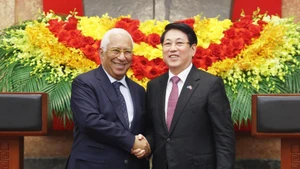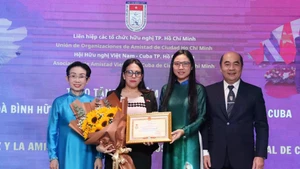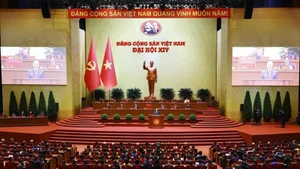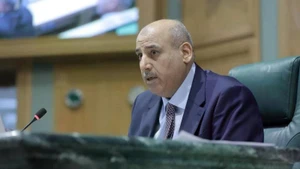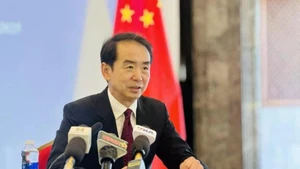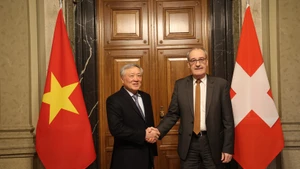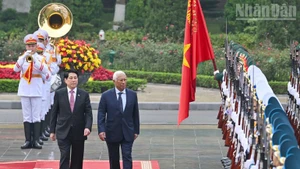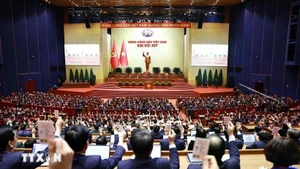The meeting was co-hosted by the Vietnamese Ministry of Industry and Trade, the Mongolian Ministry of Foreign Affairs, the Mongolian National Chamber of Commerce and Industry, the Vietnamese Embassy in Mongolia, and relevant agencies from both countries.
Attendees were representatives from the Food Revolution initiative and leaders of 10 exporters and importers specialising in food, beverages, household products, consumer goods, energy, mining, transportation, logistics, tourism, education, labor, agriculture, and banking services.
To Lam spotlighted Vietnam as one of the world's 40 largest economies and among the top 20 economies with the highest trade volumes. It ranks 32nd among the 100 countries with the strongest national brands.
He noted that over the past seven decades since the establishment of diplomatic ties, the traditional friendship between Vietnam and Mongolia has been growing, with regular exchanges of all-level delegations, stronger mutual understanding and trust, and two-way trade exceeding 120 million USD in 2023, leaving ample room for further growth.
Looking ahead, he stressed that Vietnam will focus on leveraging internal strengths and proactively integrating into the global economy, with a focus on digital economy transformation, green growth, science and technology development, and innovation to join the global supply chain more effectively.
He added that the country aims to increase investment in strategic infrastructure and key projects that have a rapid impact on the economy. The country will also hasten the restructuring process, improve internal capacity and economic self-reliance, while offering all possible support to businesses.
According to him, Vietnam aims to become a developing country with modern industry and upper-middle-income by 2030 and a high-income, developed nation by 2045. Meanwhile, Mongolia is focusing on its "New Revival Policy" and strategic goals under its "Vision 2050," aimed at enhancing the its international role and status. These show the similarities in goals and cooperation interests between the two nations.
To Lam affirmed that ample room and opportunities remain for Vietnam and Mongolia to grow further and join the Fourth Industrial Revolution, global digital economy transformation, and green growth with renewable energy, new energy, bio-technology, and information-technology.
All of the collaboration is aimed at strengthening the relations between the two nations, for the sake of their people, as well as for peace, stability, prosperity, and development in the region and the world, he emphasised.
Host Deputy Prime Minister Dorjkhand Togmid noted with pleasure cooperation outcomes between the two countries, particularly orientations worked out during the state visit by Party General Secretary and State President To Lam.
He said the event offers an opportunity for Mongolian firms to express their aspirations to the top Vietnamese leader, thus seeking ways to enhance the bilateral trade and investment ties.
Representatives of Mongolian economic organisations raised proposals to foster cooperation between the two countries and expand their trade and investment ties, and exchanged views on opportunities and challenges in this regard.
To Lam stressed that the Vietnamese State and Government always welcome Mongolian enterprises to expand cooperation in Vietnam, adding Vietnamese ministries and agencies stand ready to support foreign businesses, including those from Mongolia.
He suggested competent agencies of both countries continue their close coordination to facilitate market access for agricultural products, particularly cattle breeding, as well as sectors such as mining, construction, logistics, digital transformation, and green and clean energy.
